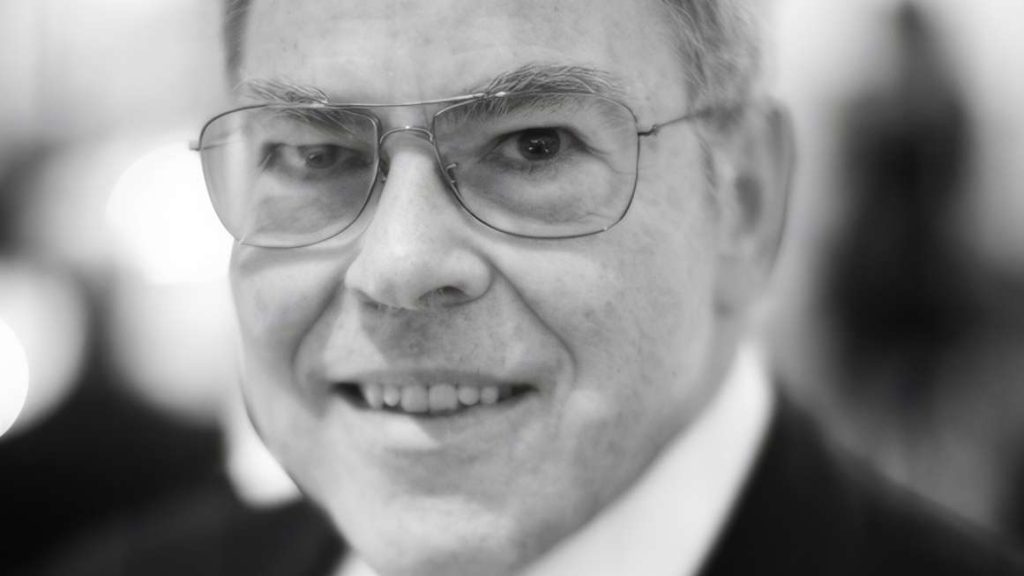Tariffs are, among other things, a crime against Manny Klausner’s dinner table. As a man who reveled in the pleasures of a perfect bottle of wine and an impeccably crafted cheese—no matter what distant land they hailed from—he found the protectionist impulse that has taken hold in the current political moment not just economically illiterate but personally offensive. Manny’s libertarianism wasn’t an abstract policy preference. It was rooted in his life: a life lived joyfully, passionately, and without permission.
Klausner, co-founder of Reason Foundation and longtime torchbearer for individual liberty, passed away in March at the age of 85. He was many things—a lawyer, an editor, a generous mentor, a tireless advocate for free minds and free markets—but above all, he was a man who fully appreciated the fruits of freedom.
Shortly after its inception, when Reason was a scrappy operation running on fumes and mimeograph ink, Manny helped put it on more stable footing that made its long run possible. Along with Bob Poole and Tibor Machan, he established Reason Enterprises, which took over the task of publishing the magazine in 1971. Swapping the various roles of editor and publisher with the other two men, he steered the publication through its adolescence.
“One of my favorite stories from the Reason Enterprises days,” writes Poole, “was the aftermath of our 1973 Ayn Rand issue of Reason.” This was an issue of the magazine featuring a pop-art portrait of the Atlas Shrugged author and a lengthy essay comparing that work to Plato’s Republic. The issue is, if anything, a love letter. But Rand was famously hostile to libertarianism in all of its guises—and Machan had been excommunicated by Rand in the 1960s for asking the wrong questions in a letter. “Several months after it appeared,” Poole explains, “we got a letter from Rand’s attorney demanding that we publish a retraction and cease selling any back issues. Manny engaged in correspondence, which made no progress until he suggested that he would welcome the opportunity to defend us in a legal case named Rand v. Reason. That was the last we heard from that attorney.”
Long before it was fashionable, Manny took seriously the idea that libertarians should win. Not just in the courts—where he brought cases alongside his close friend and fellow litigator Ted Olsen—but also in the broader culture. (He was less successful in his early efforts to attain political office under the banner of the fledgling Libertarian Party.)
He believed that beauty, pleasure, and good taste were not indulgences to be justified but evidence of a life well lived. He made the case, by example, that a principled life could also be an abundant one.
It’s fashionable at the moment to talk about living with less and returning to the old ways. Manny understood, better than anyone, the ways that physical stuff facilitates the good life—one of connection, engagement, and leisure for intellectual pursuits. He was an irrepressible optimist, who saw a better future around every corner. A passionately devoted husband, he saw no allure in a past where his marriage to the accomplished and beautiful Willette would have been illegal under miscegenation laws.
In an era when many libertarians hoped to win the day with either stridency or mainline respectability, Manny cut a different path: sharp, stylish, and deeply principled. He was the kind of man who could debate the finer points of antitrust law over a perfect roast duck, and leave both the argument and the diner better off for it.
In his obituary for co-founder Machan, Manny recalled that in early days of Reason, “no one had any sense of ‘the libertarian moment.’ Rather, it wasn’t unusual to be referred to as a libertine—and I was once even mistakenly introduced as a librarian.”
In fact, Manny studied with Ludwig von Mises and sat at the feet of Murray Rothbard, but he wore his erudition lightly. He understood that no one changes their mind by being beaten down. One must persuade with carrots—ideally braised in brown butter and served alongside an aged rib-eye—not sticks.
On Reason‘s fifth anniversary, Manny quoted Rothbard, who had recently declared that “no libertarian periodical, regardless of promotion, advertising, layout, or whatever….has been able to get its circulation above two or three thousand” and that “there seems no real warrant for gauging the [libertarian] movement at more than 3000.”
“We are delighted,” wrote Klausner, “to be able to prove Dr. Rothbard’s pessimism premature.”
He remained closely involved with Reason throughout his life, serving on Reason Foundation’s board of trustees for decades and offering sharp-eyed copy edits on everything from fundraising appeals to cover stories. He was one of the magazine’s fiercest protectors—always pushing us to be better, braver, and truer to our mission.
To know Manny was to experience his generosity: with his time, his table, and his spirit. He hosted dazzling dinners full of laughter and smart people. And he never lost faith in the idea that persuasion, done right, could move the world.
Manny Klausner lived his values. He knew that freedom isn’t just about the right to say no—it’s about the opportunity to say yes: to travel, to taste, to think, to risk, to love.
And yes, to a bottle of burgundy that no government had any business trying to tariff into oblivion.
He will be missed—and toasted often.
The post The Abundant Life of Manny Klausner appeared first on Reason.com.





